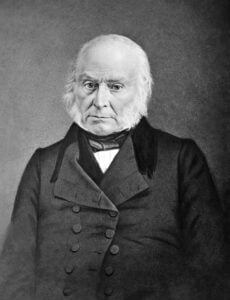When I read a news article about congressional testimony from Dr. Rick Bright, my mind immediately went to genealogy, thinking of my colonial ancestor Henry Bright of Watertown, and one of his genealogist descendants, Jonathan Brown Bright, an early member of NEHGS, who set up a rather specific scholarship for students attending Harvard College.
When I worked in Research Services from 1997 to 2002, we would get occasional requests on ancestry-based scholarships. I learned that Harvard University has a small number of these scholarships, listed here. The majority of these are very specific; probably the most broad are for descendants of Massachusetts Bay Governor Thomas Dudley (1576-1653) and New Haven Colony settler Robert Pennoyer, the last one established in 1670 by Robert's brother William. The remaining scholarships are for descendants of much later individuals, or the additional restriction that the recipient has to also have the surname of the ancestor. One such scholarship is the Bright Legacy.
Under the provisions of the will of Jonathan Brown Bright of Waltham, Massachusetts, dated 13 December 1860, the legacy is described as follows:
"I give to the President and Fellows of Harvard College the sum of fifty thousand dollars, to be safely invested and kept with the other property of said college, but always to be accounted for and preserved as a distinct capital, to be called the Bright Legacy, the income shall be annually applied as follows: One-half shall be divided into four scholarships of equal amount; and whenever there shall be, in any department; of said college, a student or students by the name of Bright, lineally and legitimately descended from my Anglo-Saxon ancestor, Henry Bright, jun. and his wife Anna Goldstone of Watertown, the amount of one of said scholarships shall be paid to each of them; and if there should be at any time more than five of such students the amount of the free scholarships shall be equally divided among them all, and if, during any year, there shall be no such students, or a less number than five, the President and Fellows may appropriate the amount that year, for the support of any meritorious undergraduate; and the other half of said annual income shall be annually expended on books for the college library. I have selected Harvard College, the most ancient and venerated seat of learning in my native State, to be the custodian of this legacy as an expression of my appreciation of its liberal yet conservative character."[1]
"[Lineally] and legitimately descended from my Anglo-Saxon ancestor, Henry Bright, jun. and his wife Anna Goldstone of Watertown..."
Jonathan Brown Bright (1800-1879), was an early member of the New England Historic Genealogical Society, admitted in 1850, and he became a life member in 1863. He has a very lengthy obituary in the Register. In 1858, he published The Brights of Suffolk, England, which I wrote about in an earlier post. (Jonathan Brown Bright did not attend Harvard himself.)
President John Quincy Adams (Harvard 1787), another early member of NEHGS, was (like J.B. Bright), a great-great-great-grandson of Henry and Anna (Goldstone) Bright, making the two of them fourth cousins.[2] Obviously President Adams lived well before this scholarship, and like me, does not have the surname Bright. A descendant of Henry and Anna not bearing the surname Bright could always change their own surname, but who knows how much money is currently available to be given!
As for Dr. Rick Bright, who is a native of Hutchinson, Kansas (where my great-grandparents lived), his immigrant ancestor was German born Johann Peter Britz (died 1806) of Virginia, who anglicized his surname to Bright. So despite his surname, Dr. Bright would also not qualify for this Bright Legacy.
Notes
[1] I have frequently seen the advertisement for this legacy on books now digitized on Google.
[2] Gary Boyd Roberts, Ancestors of American Presidents, 5-7.
Share this:
About Christopher C. Child
Chris Child has worked for various departments at NEHGS since 1997 and became a full-time employee in July 2003. He has been a member of NEHGS since the age of eleven. He has written several articles in American Ancestors, The New England Historical and Genealogical Register, and The Mayflower Descendant. He is the co-editor of The Ancestry of Catherine Middleton (NEHGS, 2011), co-author of The Descendants of Judge John Lowell of Newburyport, Massachusetts (Newbury Street Press, 2011) and Ancestors and Descendants of George Rufus and Alice Nelson Pratt (Newbury Street Press, 2013), and author of The Nelson Family of Rowley, Massachusetts (Newbury Street Press, 2014). Chris holds a B.A. in history from Drew University in Madison, New Jersey.View all posts by Christopher C. Child →
